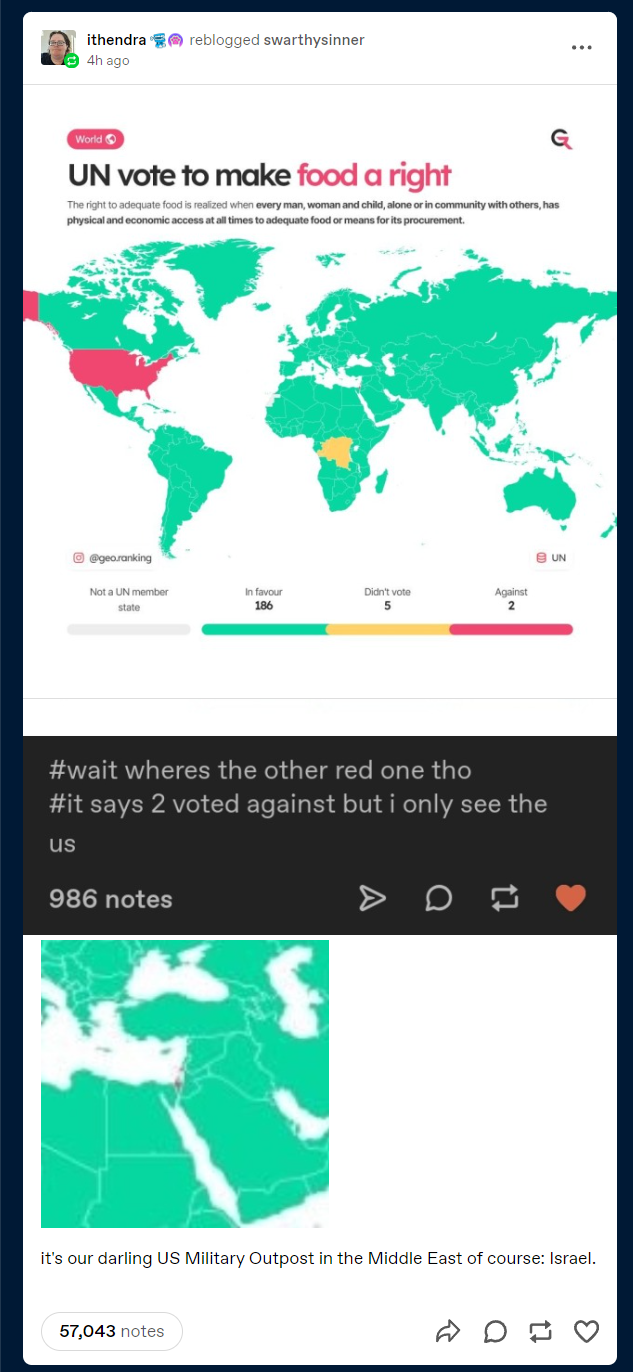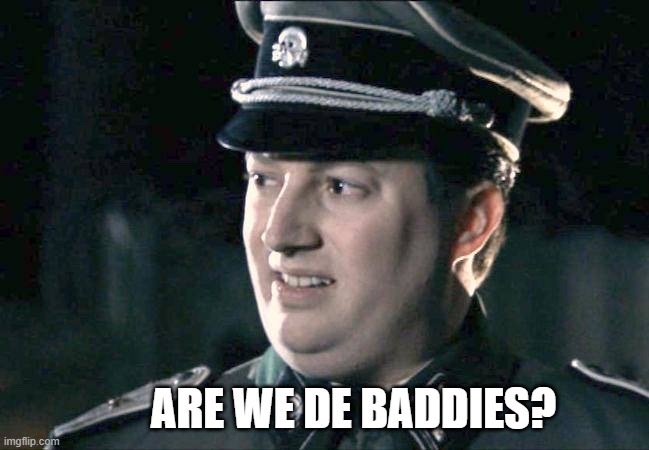Their reasons will not be valid, I'm not going to even entertain reading them.
We make more food than we consume on this planet—in the absence of scarcity, food security is obviously a human right, it's aggressively malignant to be against this.
Whilst we're at it, shelter is a human right too, we have several times more empty houses than homeless people in most developed nations—that's fucked.

